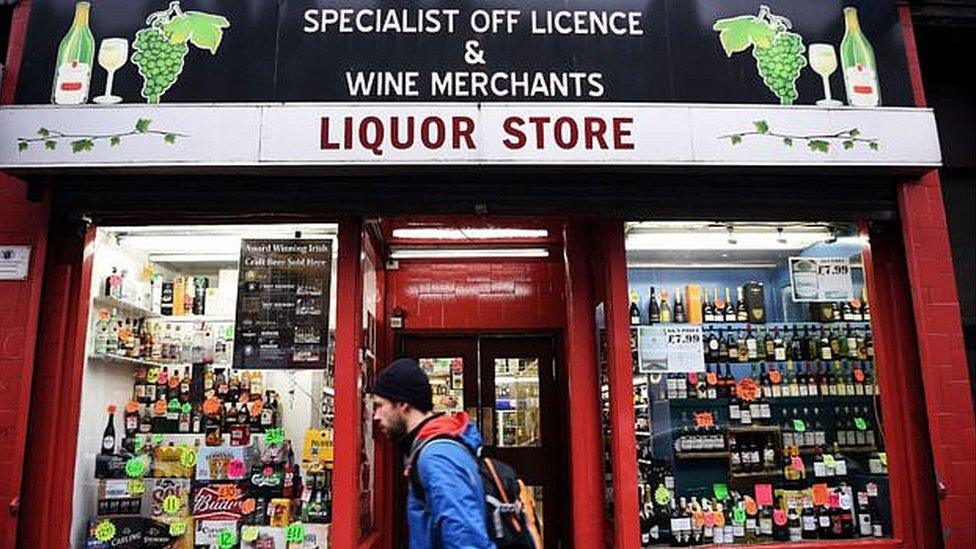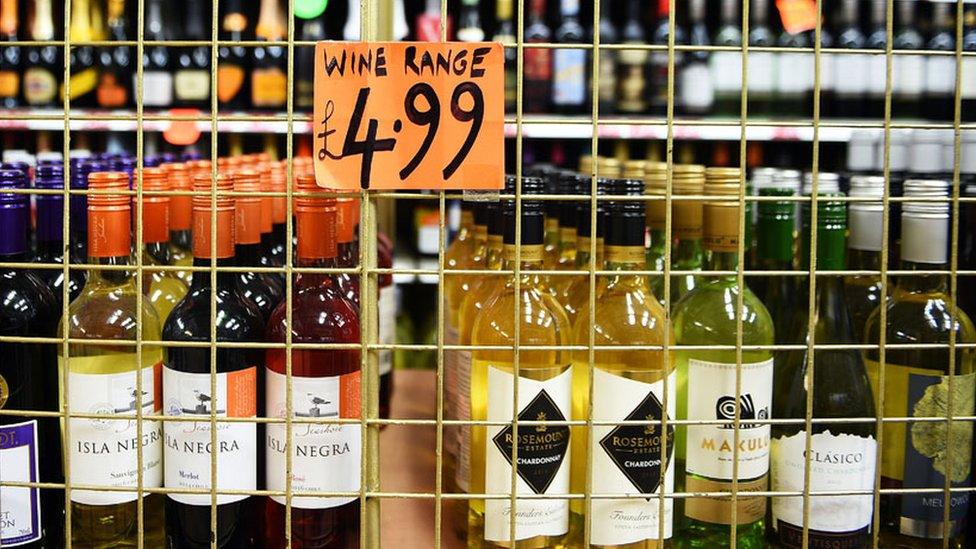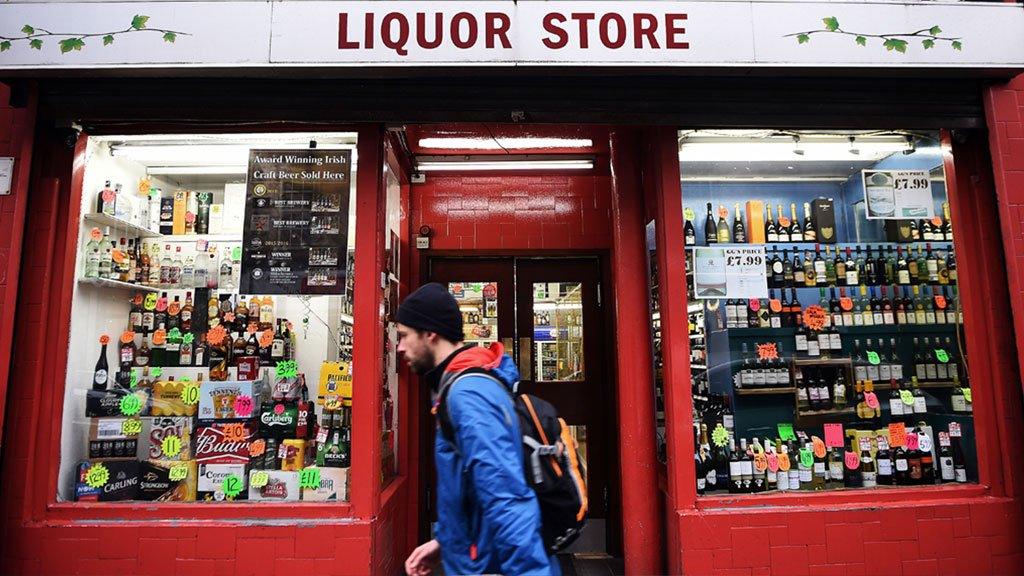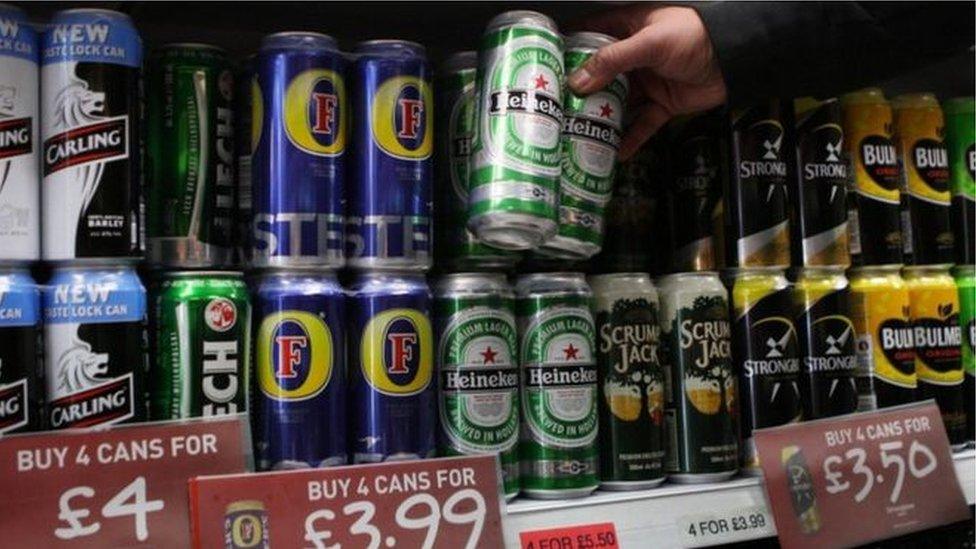Alcohol minimum pricing 'implemented effectively'
- Published
- comments

Report suggests a high level of compliance with Minimum Unit Pricing by off-licences which stood to gain financially from the policy
The new policy of minimum unit pricing for alcohol (MUP) has been implemented effectively, a report has found.
The first study of the policy, which came into force in May 2018, found compliance was high among licensed premises in Scotland.
The report published by NHS Health Scotland , externalis one of a series of evaluations of MUP, which was the first policy of its kind in the world.
Ministers said it was vital to reduce the harm caused by alcohol in Scotland.
MUP set a floor price of 50p per unit of alcohol and the legislation which introduced this requires its impact to be monitored regularly, external.
Police and local authority officials with a licensing remit reported no increase in illegal and unlicensed alcohol activity since the law was introduced.
The report said pubs, clubs and restaurants, which typically charge higher prices for drink than off-licences and supermarkets, had been largely unaffected by MUP.
Examples of prices
£14Whisky (70cl bottle at 40% ABV)
£13.13 Vodka (70cl bottle at 37.5% ABV)
£1 Lager (500ml can at 4% ABV)
£2.50Cider (1 litre bottle at 5% - normal strength)
£4.69 Red wine (75cl bottle at 12.5% ABV)
Inspectors found some examples of non-compliance among convenience stores and supermarkets, but they were considered minor and were swiftly resolved.
Elinor Dickie, public health intelligence adviser at NHS Health Scotland, who wrote the report, said: "Minimum unit pricing has the potential to improve Scotland's relationship with alcohol and reduce the harm it causes.
"But MUP in the form we have it in Scotland hasn't been put it in place anywhere before. That's why it's so important to gather evidence of its impact through a robust and comprehensive evaluation."
The introduction of the policy was held up by a series of legal challenges by the Scotch Whisky Association (SWA) which claimed it was a restraint of trade.

Following a decision by the European Court of Justice (ECJ) the UK Supreme Court ruled in November 2017 that the policy was lawful.
The report admits there was a financial incentive for retailers to comply with the new policy, both to protect their licence, and because MUP is perceived to increase their income.
The additional cost is not a tax, and is retained by the shop selling the alcohol.
Chairman of the National Licensing Standards Officers' Network Douglas Frood said: "Practitioners felt the trade were receptive to the new condition, and highlighted both the level of engagement amongst licence holders and their willingness to comply with the legislation.
"The finding that no known increase in illegal and unlicensed alcohol activity related to the introduction of MUP was reported is also to be welcomed."
A series of further evaluations of MUP will be published before the end of 2019 including analysis of sales data and the impact of the policy on children and young people.
- Published1 May 2018

- Published15 November 2017
